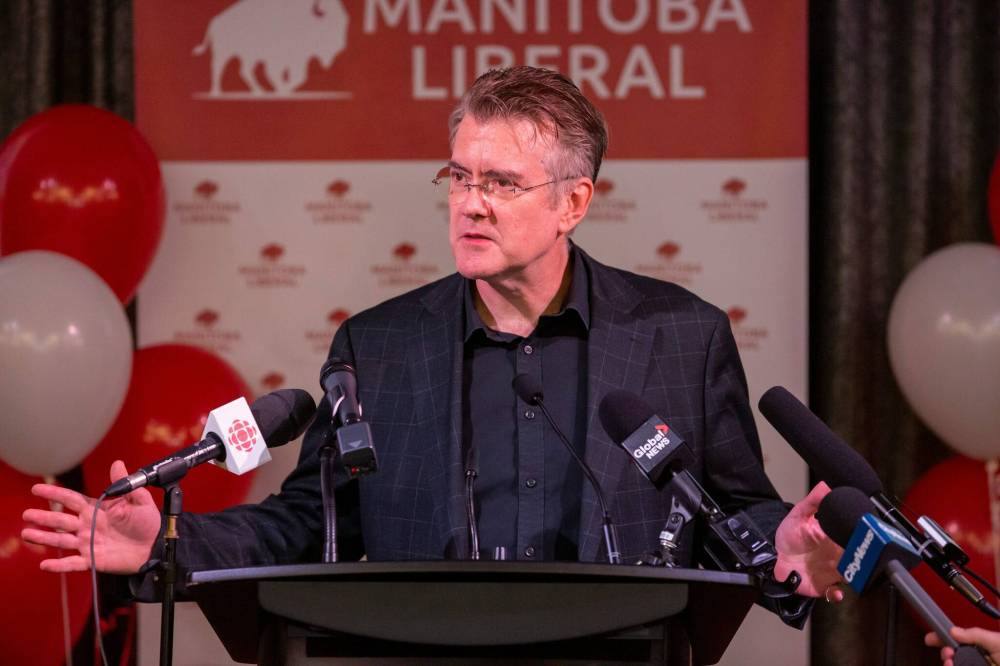A peek behind the mask
Advertisement
Read this article for free:
or
Already have an account? Log in here »
To continue reading, please subscribe:
Monthly Digital Subscription
$1 per week for 24 weeks*
- Enjoy unlimited reading on winnipegfreepress.com
- Read the E-Edition, our digital replica newspaper
- Access News Break, our award-winning app
- Play interactive puzzles
*Billed as $4.00 plus GST every four weeks. After 24 weeks, price increases to the regular rate of $19.00 plus GST every four weeks. Offer available to new and qualified returning subscribers only. Cancel any time.
Monthly Digital Subscription
$4.75/week*
- Enjoy unlimited reading on winnipegfreepress.com
- Read the E-Edition, our digital replica newspaper
- Access News Break, our award-winning app
- Play interactive puzzles
*Billed as $19 plus GST every four weeks. Cancel any time.
To continue reading, please subscribe:
Add Free Press access to your Brandon Sun subscription for only an additional
$1 for the first 4 weeks*
*Your next subscription payment will increase by $1.00 and you will be charged $16.99 plus GST for four weeks. After four weeks, your payment will increase to $23.99 plus GST every four weeks.
Read unlimited articles for free today:
or
Already have an account? Log in here »
Hey there, time traveller!
This article was published 05/10/2023 (757 days ago), so information in it may no longer be current.
‘A critic is someone who enters the battlefield after the war is over and shoots the wounded,” American journalist Murray Kempton once wrote. It’s also something that’s often used to describe the role of editorial writers — and often, it’s apt.
But not today. (Probably tomorrow.)
Perhaps it was the sheer bitterness of the provincial election campaign — the low blows, the acrimony between the different sides, the current nastiness that permeates most political discussion on social media.

Brook Jones / Winnipeg Free Press
Manitoba Liberal Leader Dougald Lamont announcing he is stepping down as party leader.
But watching the election unfold was different. As the final numbers came in, the political masks dropped, and people emerged from behind their political facades — in all three major parties.
The after-resignation politeness of former Manitoba Liberal leader Dougald Lamont, answering questions despite the clear frustration — a frustration you could feel viscerally coming off him in waves — of not having been able to get his party’s message and ideas across. Still, having lost his own seat, he kept carefully and honestly answering questions about how he felt, long after you felt he clearly wanted to walk away.
The unexpectedly engaging concession speech from Heather Stefanson, onstage with her family, congratulating her opponents and saying she would prepare for an orderly transition, looking more comfortable than she had throughout the campaign.
And Wab Kinew, starting a victory speech with word about how individuals have to decide to take the first step to turning their lives around, but promising that his government would help once that first step was taken. Thanking his opponents for their service to the province. Silencing the crowd when they booed his thanks for Heather Stefanson’s work. Getting the crowd to sing “appy Birthday to his mother.
All three leaders radiated a refreshing, unscripted humanity.
Overwhelmingly, it showed an aspect of politicians that is often hidden behind strategic performance — and that is the fact that they are living, breathing, feeling people who actually are in politics for the right reasons, to do what they believe they can to improve the lives of Manitobans.
People forget sometimes that politics is a brutal business: that far more politicians lose their races than win, and that every politician eventually pays a price for their service, whether it’s an unexpected defeat or a realization that their work can be overturned by something as simple as a new administration.
Tuesday night, though, was something of a balm.
It all gave a sense of hope, as if politics really could be a discussion of ideas during the hunt for solutions, instead of a pitched and calculating game of “gotcha.” That, deep down, our provincial politicians may differ on policy, but still understand and feel some empathy for what their opponents experience.
We are going to need more of that, not only to face the inevitable difficulties of governing a province during the current turbulent fiscal times, but to handle the hardening of discourse that’s now taken as normal. Working together will be far more effective than sniping back and forth from cover.
Nationally, it’s pretty clear that the next federal election is not only going to be hard-fought, but that the fight will be far more bitter and take-no-prisoners than we have seen in recent memory. While politicians once felt bound to only bend the truth to within an inch of breaking, Canadian politics has begun to mirror our American neighbours, where “the truth” is simply the unchallenged acceptance of what you already want to believe.
The willingness to replace honesty with strategy doesn’t help the electorate make the right choice, nor does it deliver the best leadership for this country.
Tuesday night suggested it might not always have to be that way.


